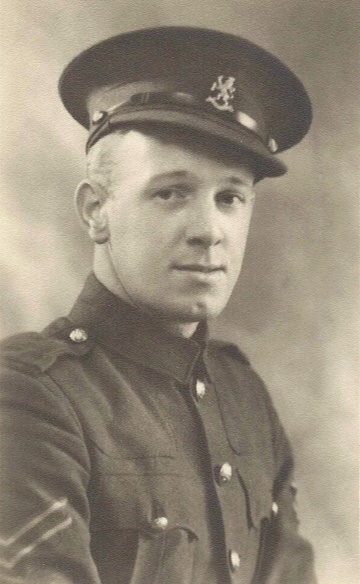Thematic collection: Project 'Long shadow of Sobibor' - description and all interviews
'The Long Shadow of Sobibor' is an interview project representing a unique historical document. The collection comprises open interviews taken by Professor Selma Leydesdorff with 9 survivors of the Sobibor revolt (1943) and 22 next of kin to persons murdered in Sobibor. These unique testimonials are far more than stories about camp life alone. --Stories of lives-- The interviews are the stories of whole lives, in which people tell about the world that died with their relatives in Sobibor, and how they managed to continue with their lives without their loved ones. They recollect what the murder of their dearest ones or relatives did to them. Often they lost one or both of their parents. Those who survived the revolt that took place in Sobibor on October 14, 1943, also go into their lives before and after the extermination camp in their stories. --Great loss-- All interviewees bear the marks of Sobibor. Both next of kin and survivors have severely disturbed lives; they all had to build a new existence after the war. Sobibor stands for wounds that never heal and for a world in which the great killing is always present. By giving these interviews and telling the stories of their lives, next of kin and survivors contribute to a better understanding of what it means to have to cope with an enormous loss. Thanks to their outspokenness Sobibor has become better known to the public. --Motivation-- The trial of John (Iwan) Demjanjuk, the Ukraine-born camp guard who worked in the Sobibor extermination camp from March 26, 1943 till October 1, 1943, started November 30, 2009 in Munich, Germany. Co-plaintiffs played a major role during the trial. A number of next of kin to people murdered in Sobibor joined camp survivors in requesting to be heard during the Demjanjuk trial. These so-called co-plaintiffs played an important role in the Munich courtroom, once more due to the fact that Jews who were deported to Sobibor extermination camp from the Netherlands left behind almost no testimonials, and only a few survived. The co-plaintiffs were offered the opportunity to tell their own stories by Mrs Selma Leydesdorff. Many of them were ready to do so, resulting in this unique oral-history project. This way, many of the co-plaintiffs became story tellers. With this project Sobibor Foundation, having taken a lion's share in supporting the co-plaintiffs during the trial, hopes to strengthen them once more. By interviewing them they were given the opportunity to tell about their recollections in comfort and peace and to prepare for the trial. Furthermore, they contribute to the knowledge about Sobibor. Most interviews were held before, at the beginning and during the course of the trial. --Survivors-- Apart from a large number of next of kin, Selma Leydesdorff also interviewed nine survivors of the revolt that took place on October 14, 1943. These are persons who as inmates did forced labour in the camp and narrowly escaped the killing machine in the course of the revolt. They either participated directly in organizing the revolt or were involved very closely. Their lives are marked by the war, Sobibor, and their aftermath as well. Deze collectie bevat 31 interviews met zowel nabestaanden van mensen die in Sobibor zijn vermoord als met Nederlandse, Poolse, Oekraïense en Russische overlevenden van de opstand in Sobibor (14 oktober 1943). De interviews zijn levensgeschiedenissen waarin de geïnterviewden vertellen over de wereld die zij hebben achtergelaten met de dood van verwanten in Sobibor, en hoe zij hun leven daarna hebben geleefd zonder hun geliefden. Nabestaanden vertellen wat de moord op hun naaste heeft betekend. Vaak gaat het om een of beide ouders. De overlevenden, van de opstand die op 14 oktober 1943 in Sobibor plaatsvond, gaan in hun verhaal ook in op hun leven voor en na het vernietigingskamp. KEYWORDS: Interviewees: Kins: Louis van Velzen, Lotty Huffener-Veffer, Constance (Pim) Combrink. Marcus (Marco) de Groot, David van Huiden, Ellen van der Spiegel Cohen, Mary Richheimer-Leijden van Amstel, Rob Wurms, Jan Goedel, Rob (Robert) Cohen, Philip Jacobs, Martin Haas, Nathan Hakker, Leida Keesing, Jaap (Jack) Polak, Rudie (Salomon) Cortissos, Jules Schelvis, Rudi Westerveld (Jaap Rudolf Isaac), Max Degen, Vera de Jong-Simons, Paul Hellmann, Geertruida (Truus) Zeehandelaar Survivors: Thomas (Toivi) Blatt, Semion Rozenfeld (Semjon Rosenfeld, Semyon Rozenfeld, Simjon Rosenfeld), Simcha (Simha, Symcha, Simkha) Bialowitz, Selma (Saartje) Engel-Wijnberg, Alexsy Wajcen (Aleksej Waitsen), Philip Bialowitz, Esther Raab, Arkady Wajspapir (Arkadii Weisspapier), Regina Zielinski-Feldman Alexander (Sacha) Pechersky, Alexander (Sasha) Pechersky DUTCH KEYWORDS: Joods leven / Jewish life: Asscher, Bar Mitswa, Besneden, Besnijden, Bijenkorf, Chanoeka, Choepa, De Bonneterie, diamant, falasha, gotspe, Hebreeuws, Jiddisch, Jiddische mama, Jiddische memme, Jizkor, Jom Kippoer, Kaddish, Liberaal Joodse Gemeente, LJG, Magen David, memme, mikwe, muziek, muziekavonden, orthodox, Oude Testament, Pesach, Poerim, rabbijn, Rosj-Hasjanah, Sabbat, Seider, Sidoer, Simchat Tora, sjabbat, sjamasj, Sjoel, synagoge, Talmoed Tora, Thora Andere religies / religions: bijbel, broeder, catechisatie, gezangen, hervormd, Jehova Getuigen, Kapelaan, Katholiek, kerk, liberaal, Oecumene, psalmen, Vrijzinnig Hervormd Voor, tijdens en na de oorlog / Before, during and after the war: antisemitisch, antisemitisme, Arbeitseinzatz, Auschwitz, Bergen-Belsen, Bescherming Bevolking, blokhoofd, Boek der Tranen, Canadezen, davidster, Dolle Dinsdag, Drie van Breda, Duitsers, Einsatz, Ezrath Ha-Jeled Stichting, Feldwebel, gaskamer, gaskamers, Gedenklaan, gemengd huwelijk, Goebbels, Hitler Jugend, Hollandsche Schouwburg, Hollandse Schouwburg, hongerwinter, invasie, Jodenjong, Joodsche Schouwburg, Joodse Raad, Muiderpoortstation, NIOD, noodkacheltje, NSB, Oekraïne, onderdrukking, Ortskommandantur, persoonsbewijs, POD, propaganda, pulsen, razzia, RIOD, Roma, Shoa, Shoah, Sinti, Sobibor, Sperr, sperre, sperre, ster, suikerbieten, Survivors of the Shoah, transport, Transportlijsten, tulpen, Untermensch, Valeriusplein, verzet, Vught, Westerbork, zionisten, zionistisch Onderduiktermen en na-oorlogse opvang / Hiding expressions, shelter after the war: Abraham Soetendorp, afwikkelingsbureau, Artikel Twee Fonds, Belegging Erfenissen Minderjarigen, BEM, bonkaarten, Claim Conference, haring, Icodo, Jamin, Jodenhaat, Jokos, JOKOS, Kabeljauw, Kalfslever, kindertehuis, Onderduik, Onderduiken, onderduikplek, Ondergedoken, Ovomaltine, pap, persoonsbewijzen, uitkering, uitkering Vervolgingsslachtoffers, vis, Wiedergutmachung, woningnood, WUV, Ziekenhuis Onderduik en namen, into hiding and names: conferentie: Het ondergedoken kind, Ed van Thijn, Ezrath Ha-Jeled, Hoedemakers, Hukrida, Jad Vashem, Kurt Leoni, oorlogsbroertje, Oorlogspleegkinderen, oorlogszusje, OPK, pleegbroer, Pleegmoeder, pleegouders, Pleegvader, pleegzusje, verzetsoom, Yad Vashem 2009 - 2011 mentioned: Alwin Kapitein, asheuvel, Demjanjuk, Demjanjuk, Gedenklaan, Himmelfahrtstrasse, Ivan de Verschrikkelijke, Jetje Manheim, Jules Schelvis, Kleidermann, Manuel Bloch, Max Pam, mede aanklager, mede-aanklager, Mirjam Huffener, Nebenkläger, Nestler, rechter Alt, Rozette Kats, Selma Leydesdorff, steen, Stichting Sobibor, stiso, Wim Boevink.
- Mirjam Huffener (project manager), Stichting Sobibor / Sobibor Foundation
- Selma Leydesdorff (interviewer), University of Amsterdam, dep. of Arts, Religion and Culture
- interview
- Jewish life
- In hiding
- Leven in de oorlog
- Verwachtingen
- Life after the war
- Sobibor
- John
- Shtetl
- History
- Sjtetl
- Bevrijding
- Kampen en ghetto's
- 2000 Getuigen Vertellen
- Modern and contemporary history
- Vervolging
- Liberation
- Second World War
- Leven opbouwen
- Rebuilding lives
- Expectations
- Joods leven
- Proces Demjanjuk
- Humanities
- Gevolgen van Sobibor
- Camps and ghettos
- Leven voor de oorlog
- Persecution
- Sobiborinterviews.nl
- Demjanjuk trial
- Tweede Wereldoorlog
- Consequences of Sobibor
- 2000 testimonials
- Leven na de oorlog
- Life during the war
- Onderduik
- Oral History
- Life before the war
Bij bronnen vindt u soms teksten met termen die we tegenwoordig niet meer zouden gebruiken, omdat ze als kwetsend of uitsluitend worden ervaren.Lees meer









